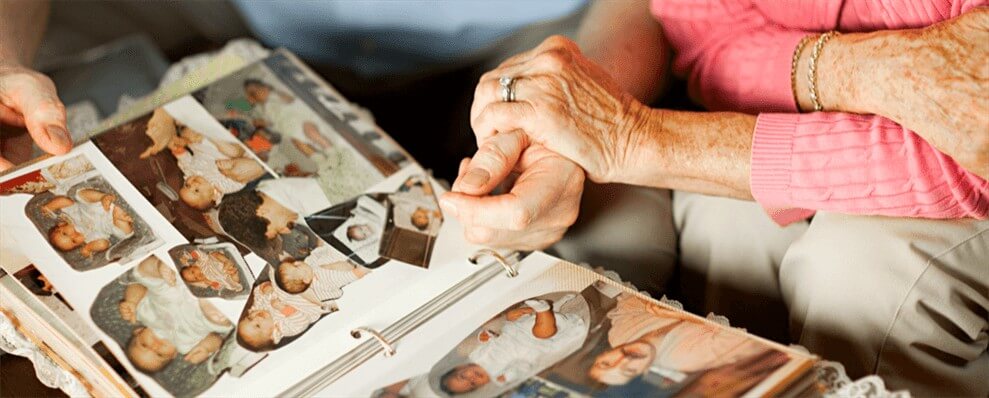Family Support in Memory Care Communities

When your loved one is affected by memory loss, the special moments you create with them become all the more precious. If your loved one is moving into a memory care facility, it’s important to find memory care programs that get the whole family involved. Creating connections with family members will help keep your loved one engaged and positive throughout their assisted living experience.
Memory care programs don’t have to be elaborate — even simple materials and activities can build deeper connections and more successful family visits. Read on for more tips on how to make the most of your involvement in memory care programs.
Foster Meaningful Interactions
At Benchmark memory care communities, families will find Engagement Boxes to help them interact with their loved one on a meaningful level. The boxes may be filled with pictures, conversation topics, themed items and other artifacts that have personal meaning for your loved one.
By going through the box together, families can find ways to truly connect, which can in turn reduce any anxiety or depression your loved one may be experiencing. In your search for a memory care facility, find out if your loved one’s community offers similar resources to foster family engagement.

Family Support Groups and Resources
Witnessing memory loss in a loved one can be challenging on many levels. In addition to finding support for your loved one, you’ll also want to find memory care programs that support family members, too.
Memory care communities offer support groups and educational programs to assist you in navigating the disease process. In any senior living community, you should receive an activity calendar each month, as well as flyers for every major event and holiday. Look for variety and innovation in daily programs, advises Michelle Tristani, Benchmark’s Corporate Director of Memory Care.
“I think the best way to visit is by coming in and doing a program with us because it allows that easy engagement,” she says. “You don’t have to sit down with mom and say, ‘How was lunch?’ ‘Well, I didn’t eat lunch.’ ‘How was breakfast?’ ‘Oh, I didn’t eat breakfast either.’”
Those conversations can be upsetting — until you discover that your mom actually did eat breakfast and lunch, but simply doesn’t remember, or can’t find the words to express herself. By actively participating in programs with your loved one, you’ll have a much better sense of how she’s doing and how you can continue to support her.
When a loved one is in memory care, both of you need some extra support. Find out what tools and programs the community offers to help families connect in a meaningful way.


